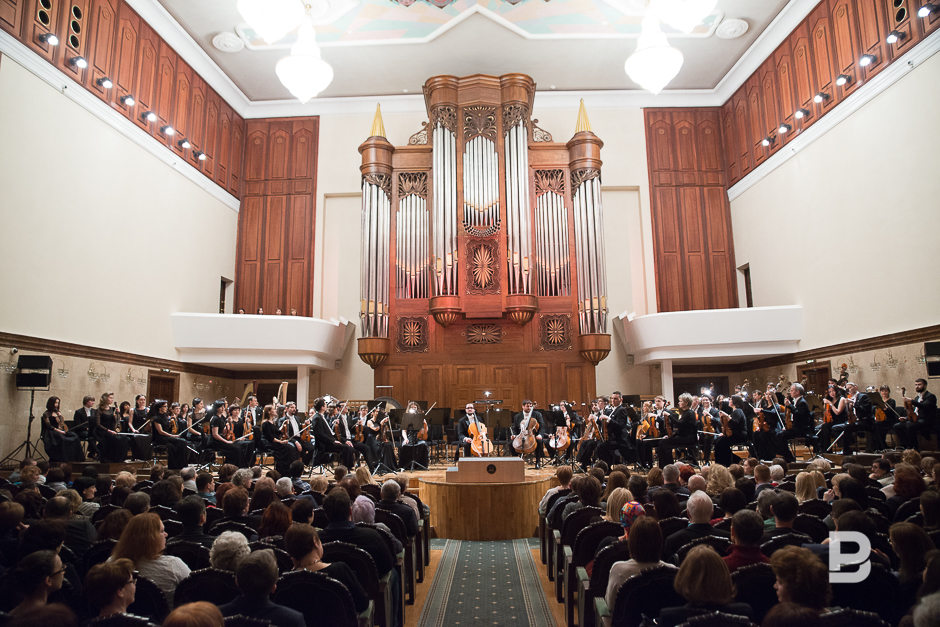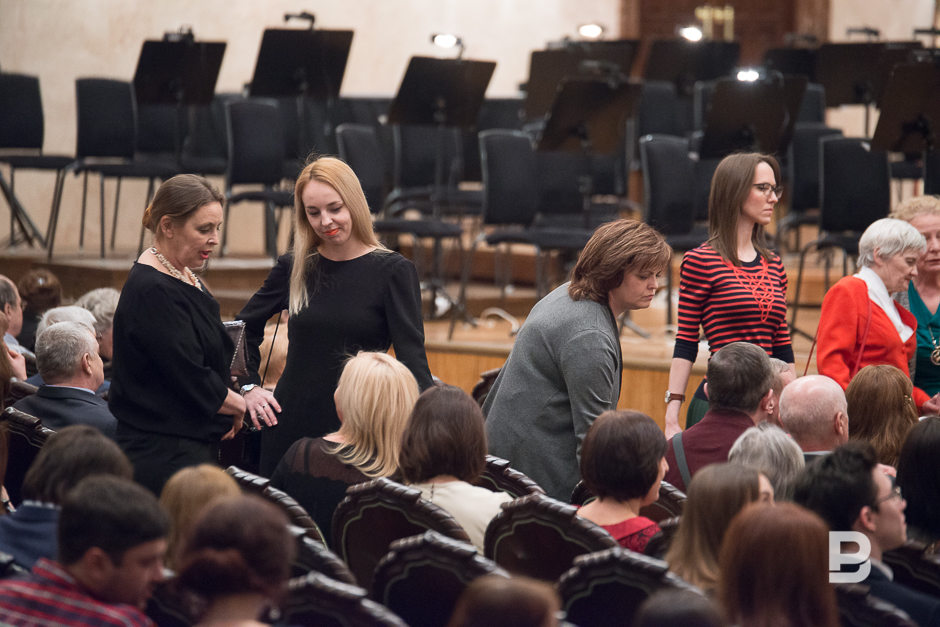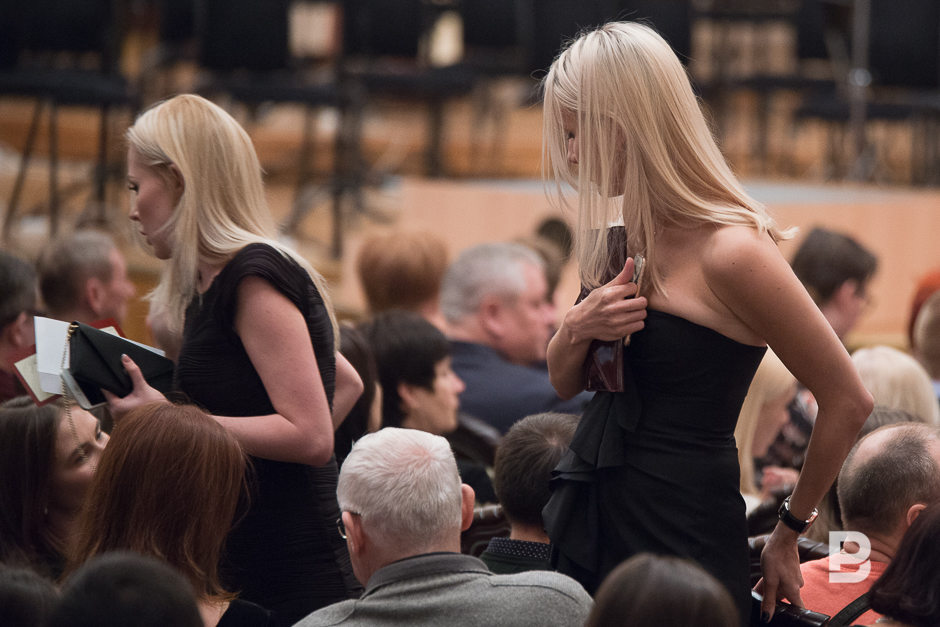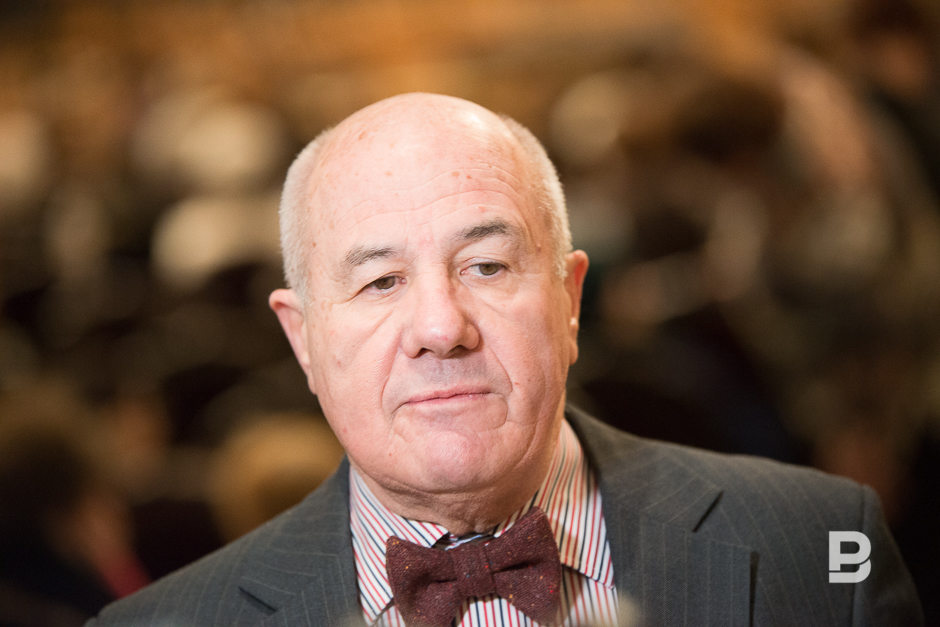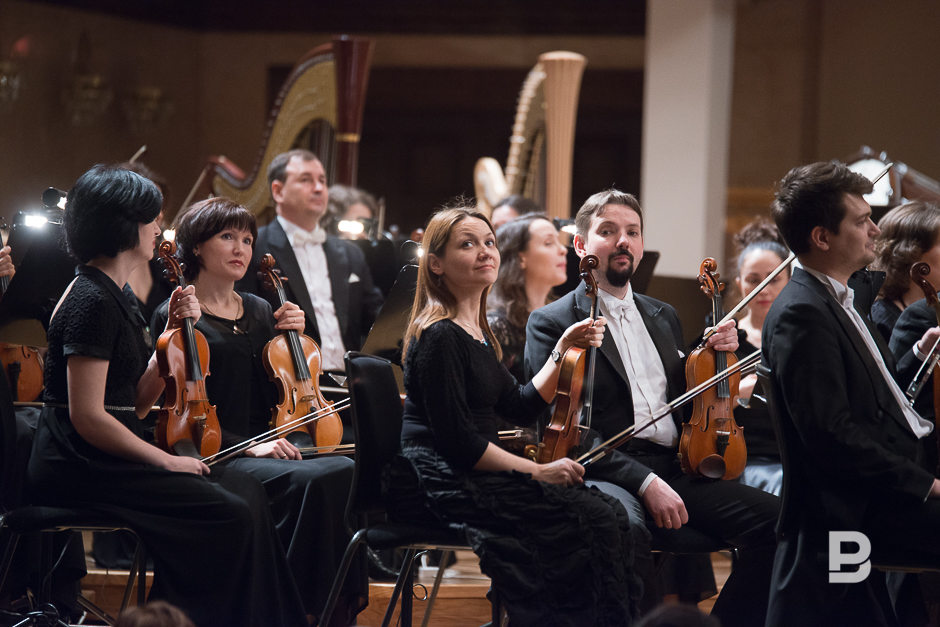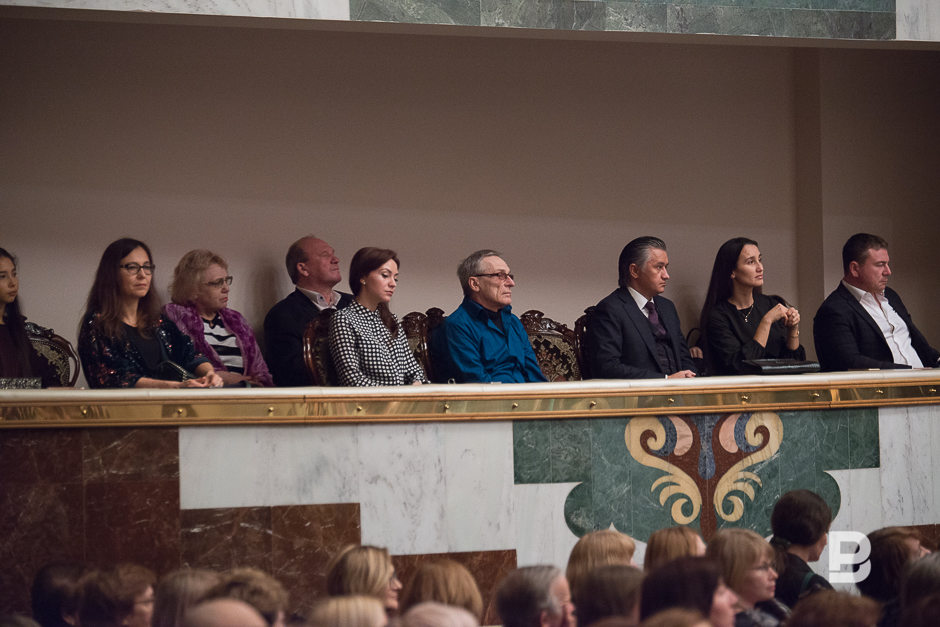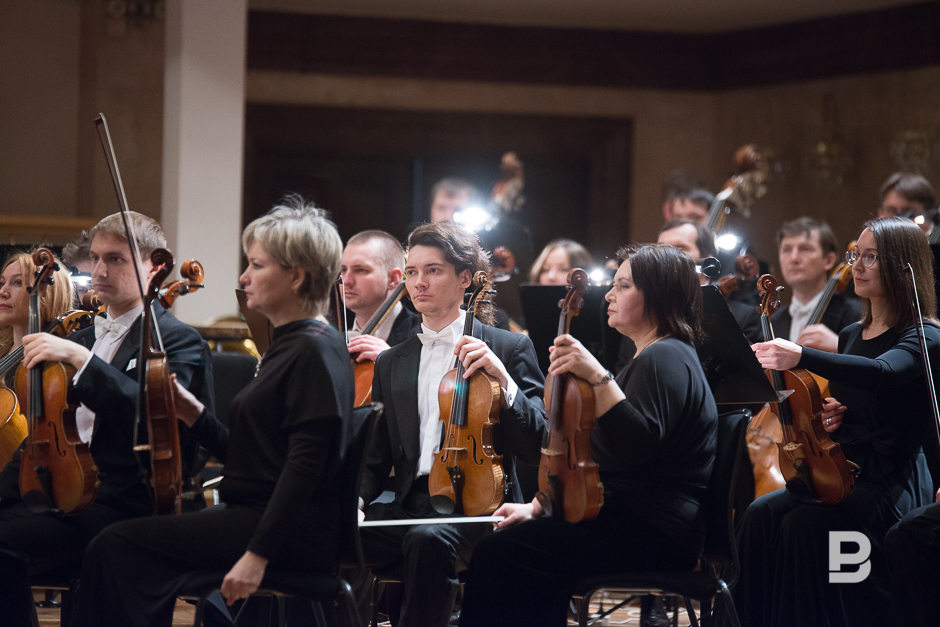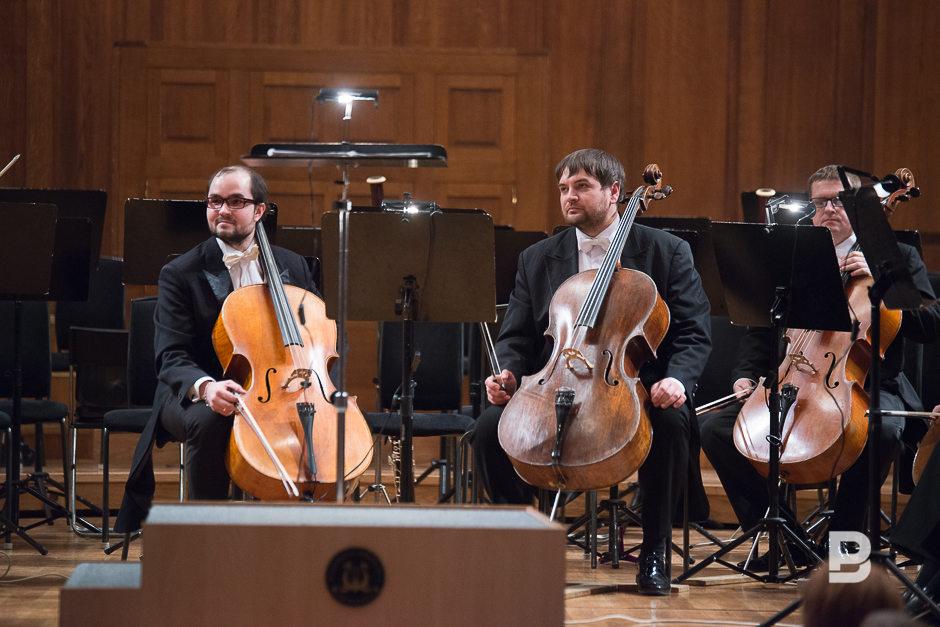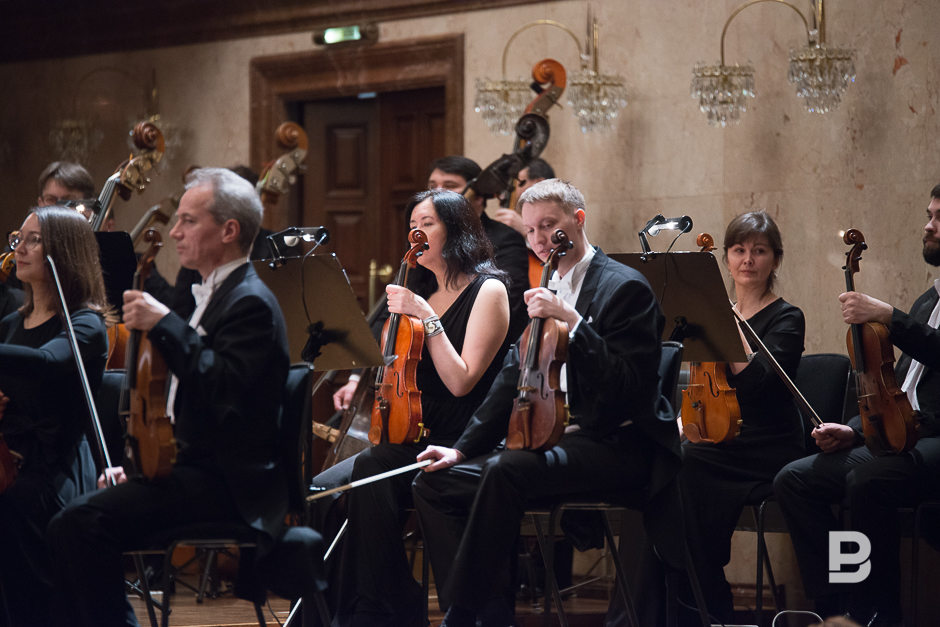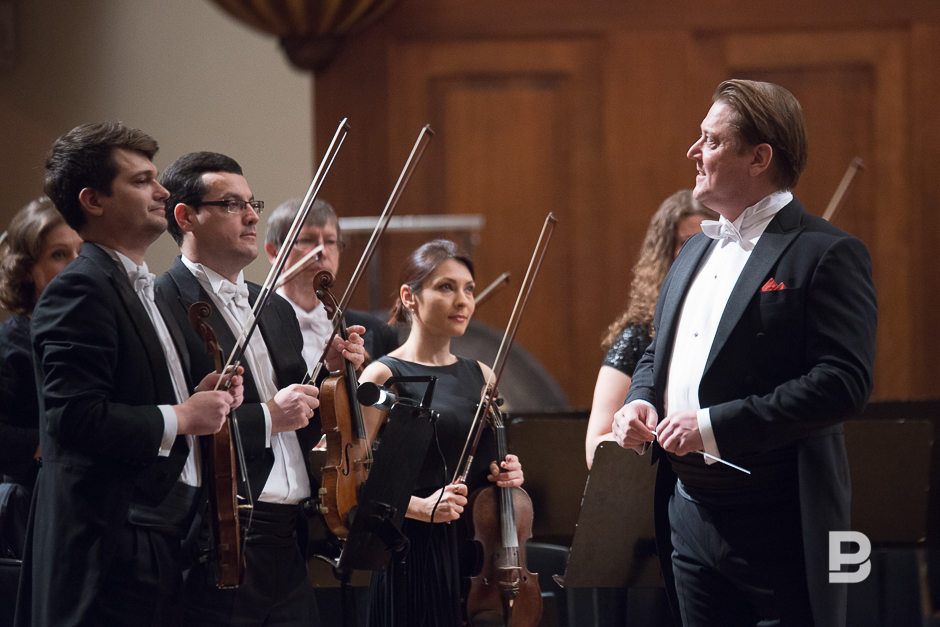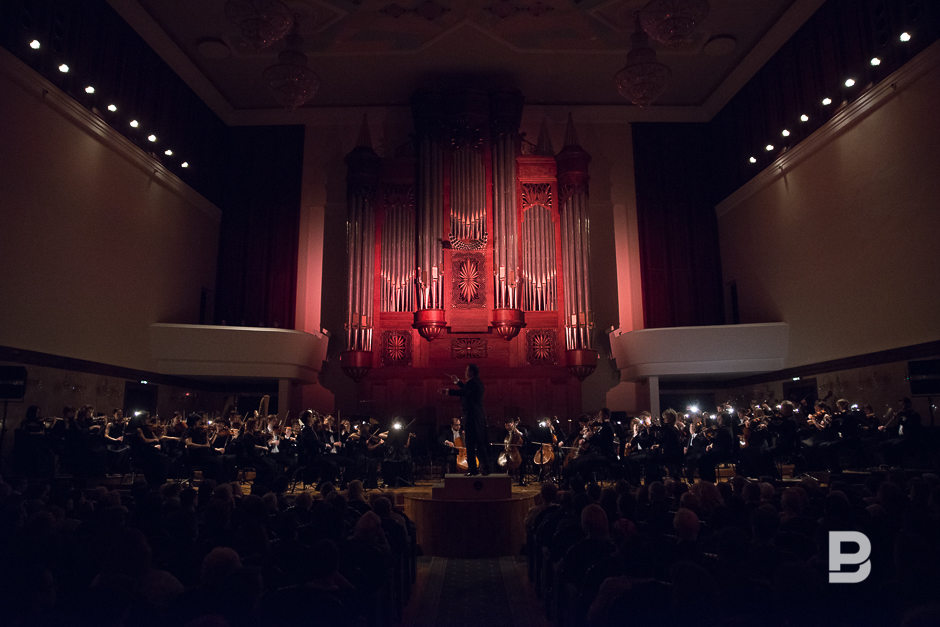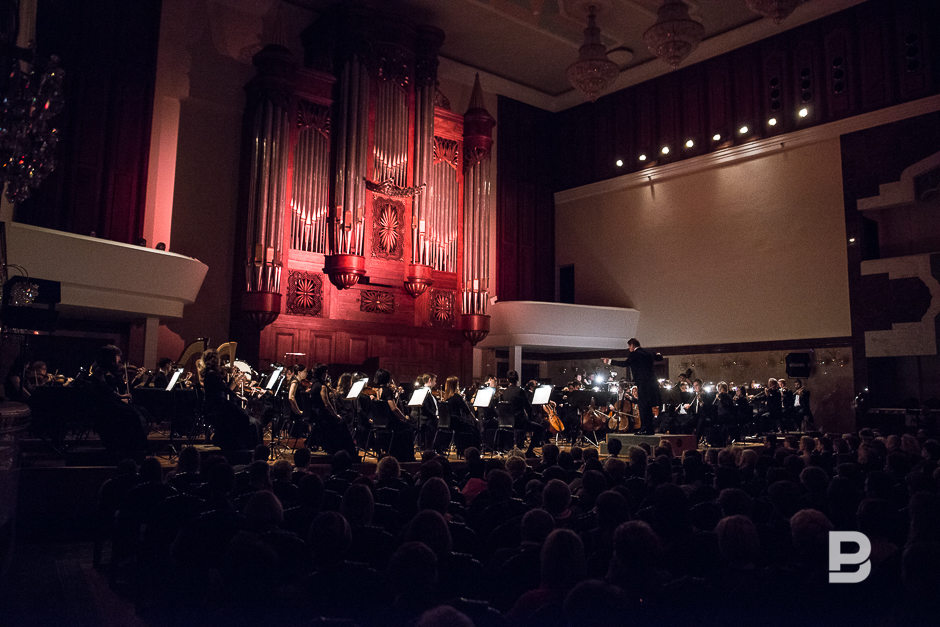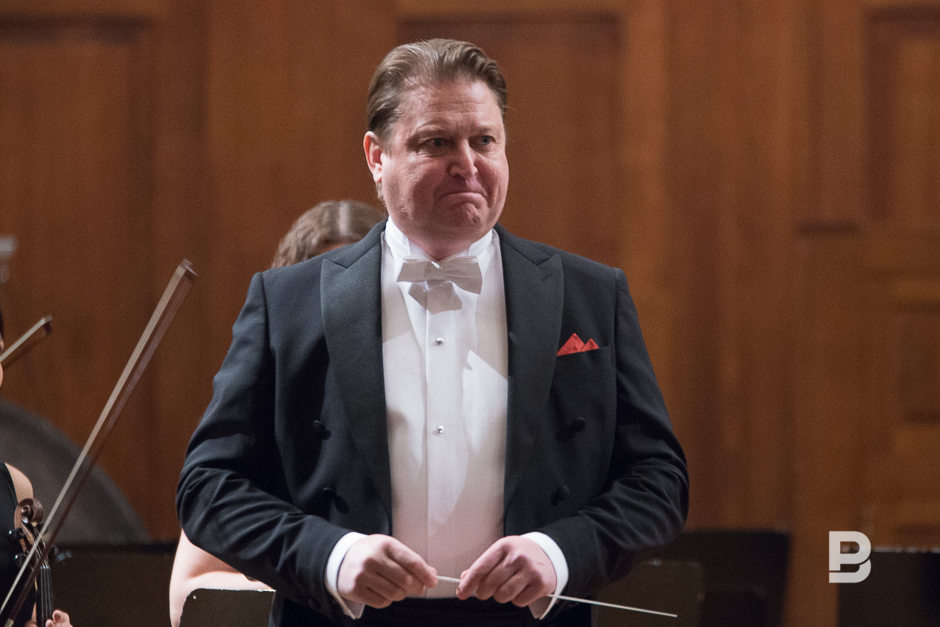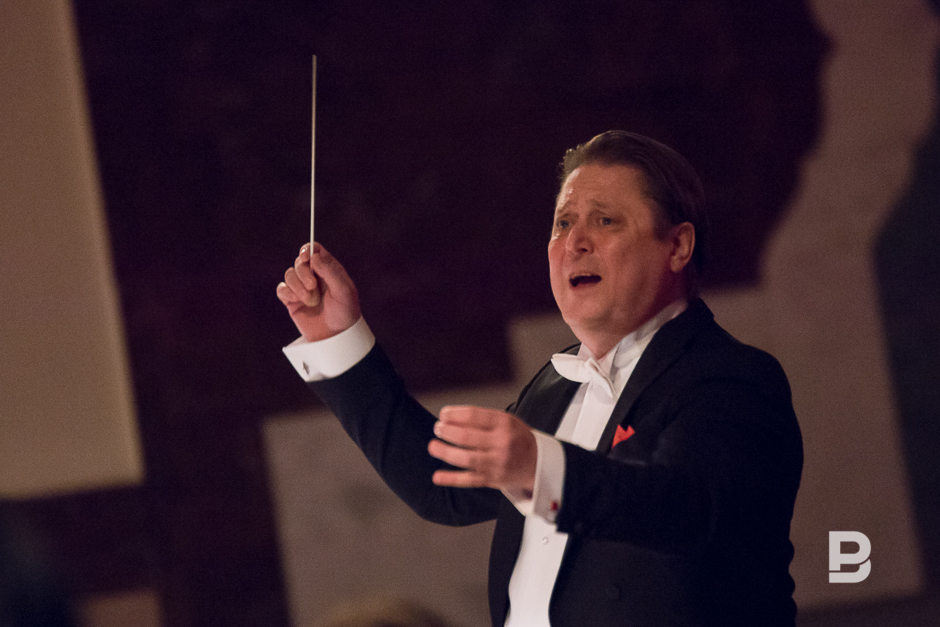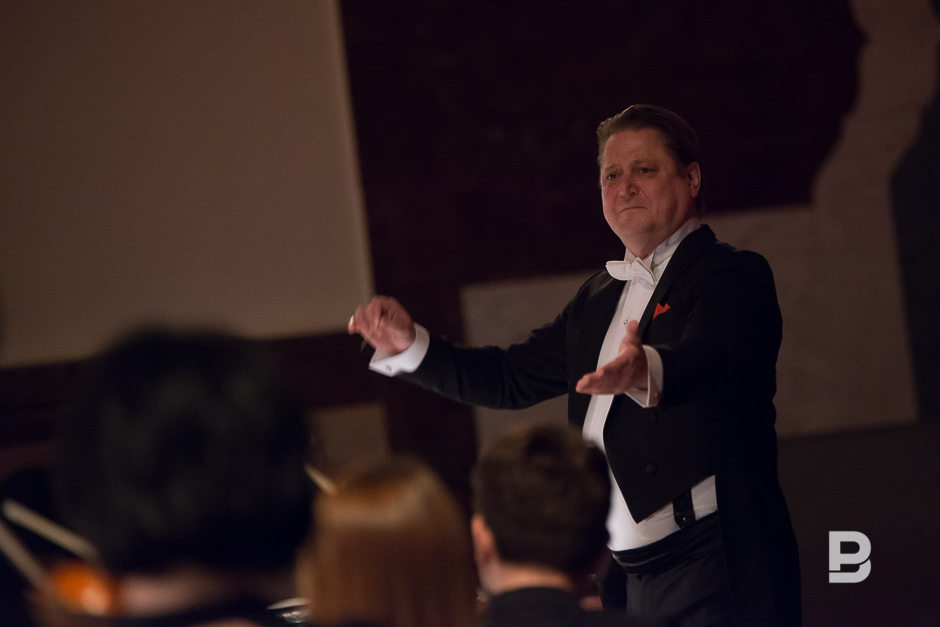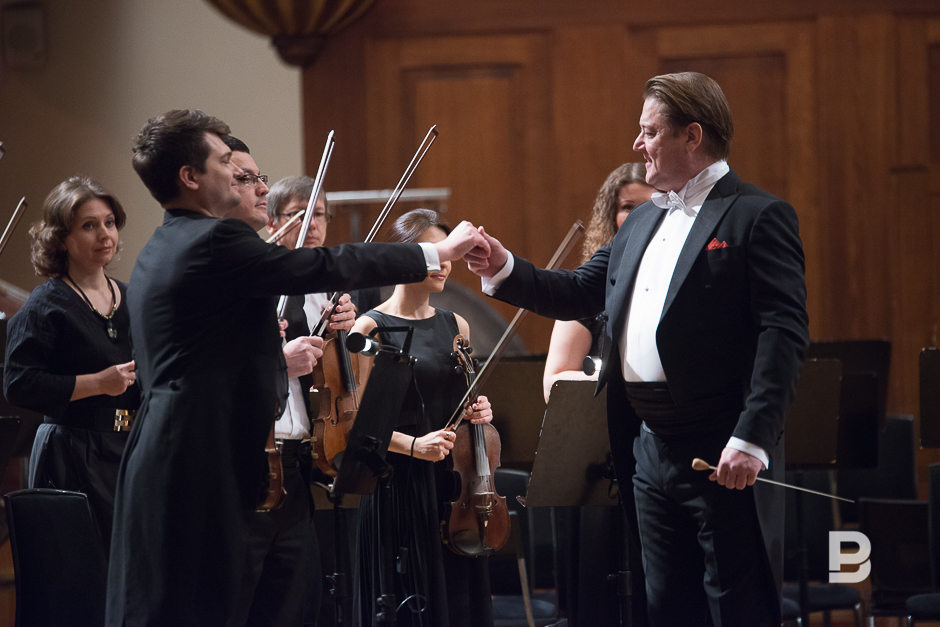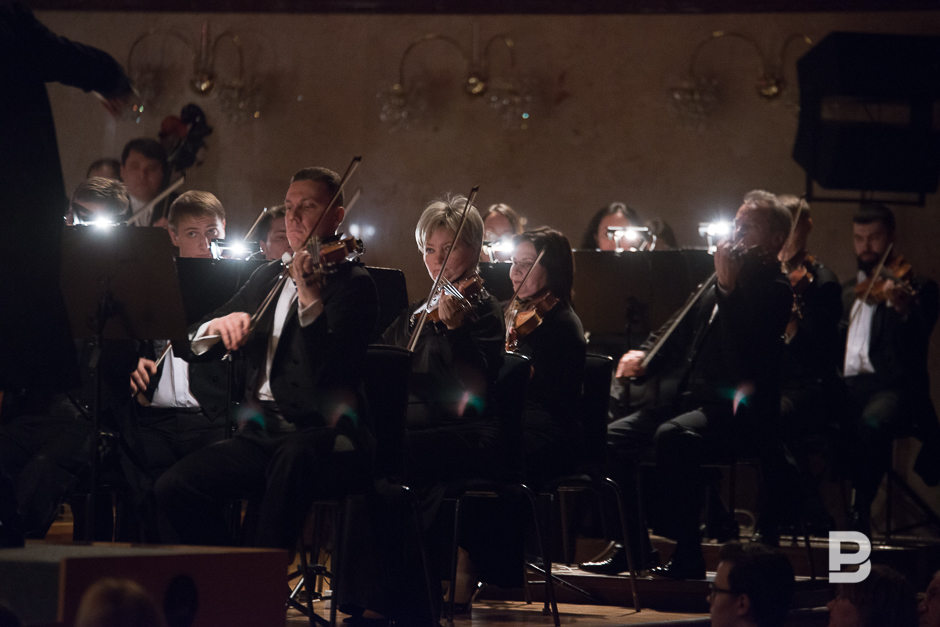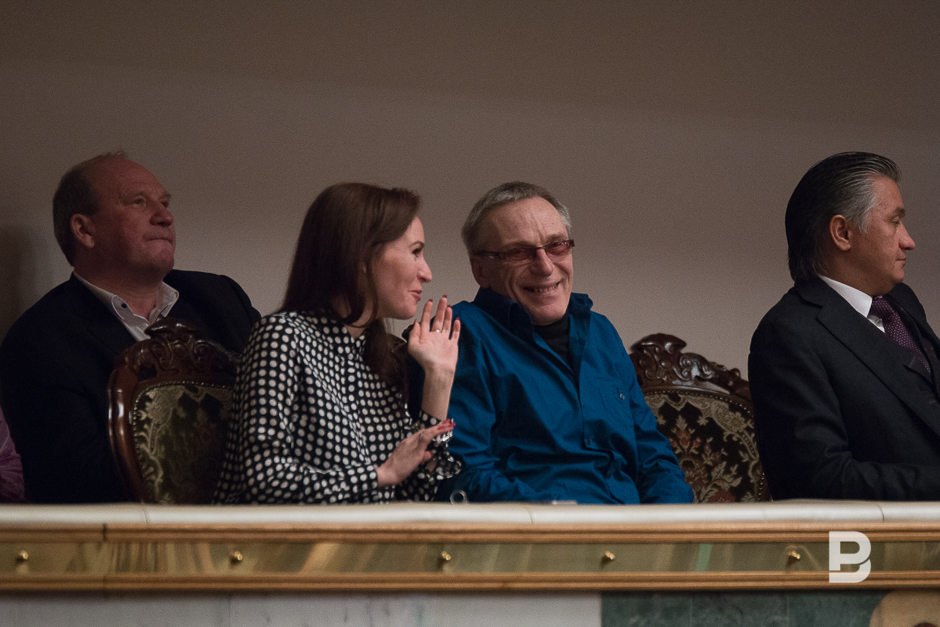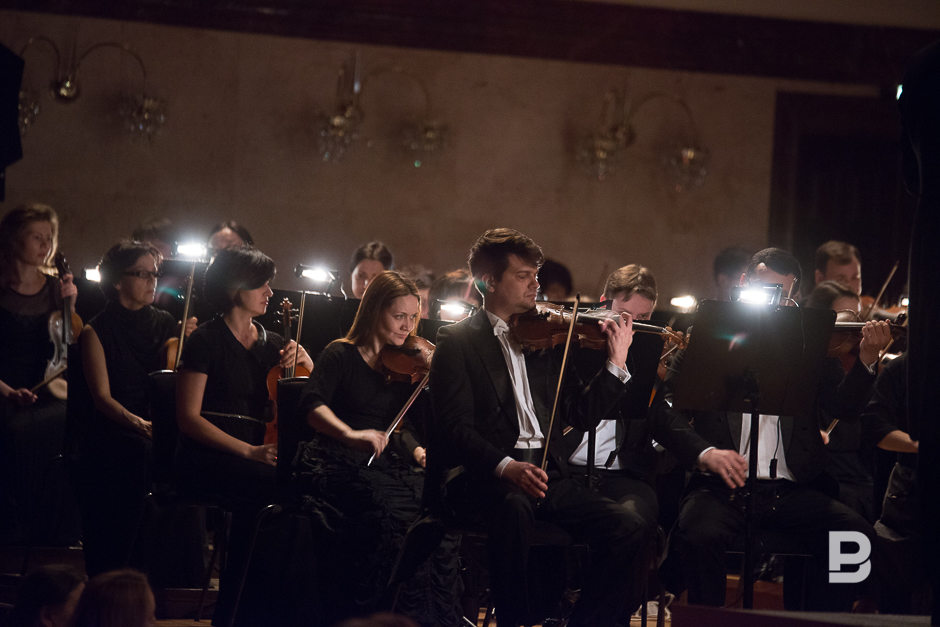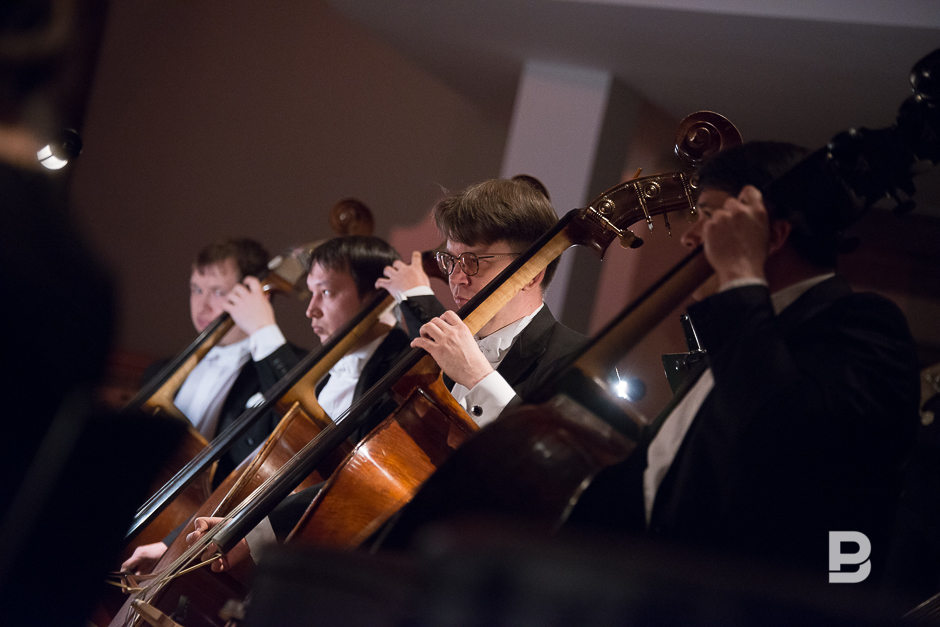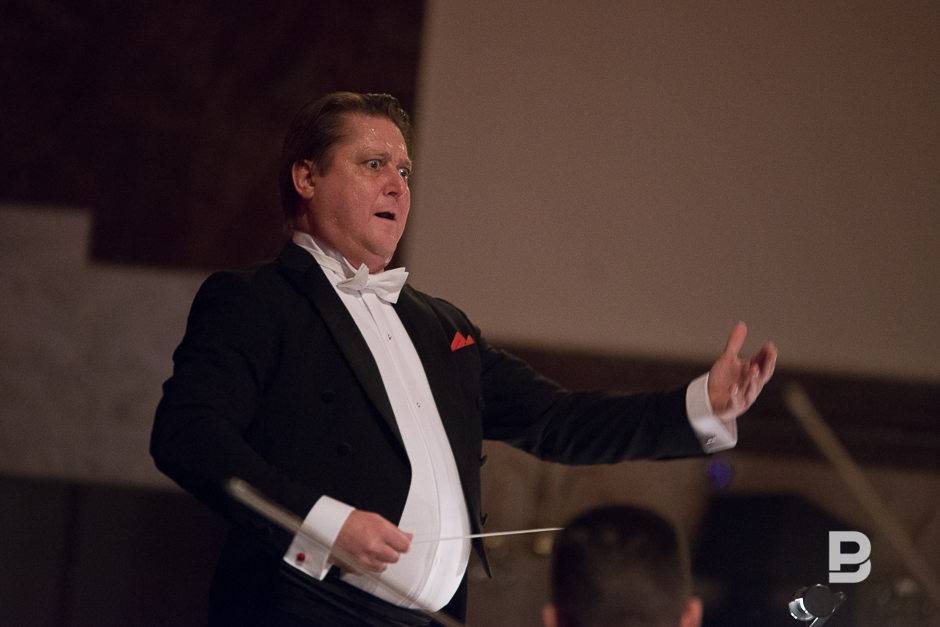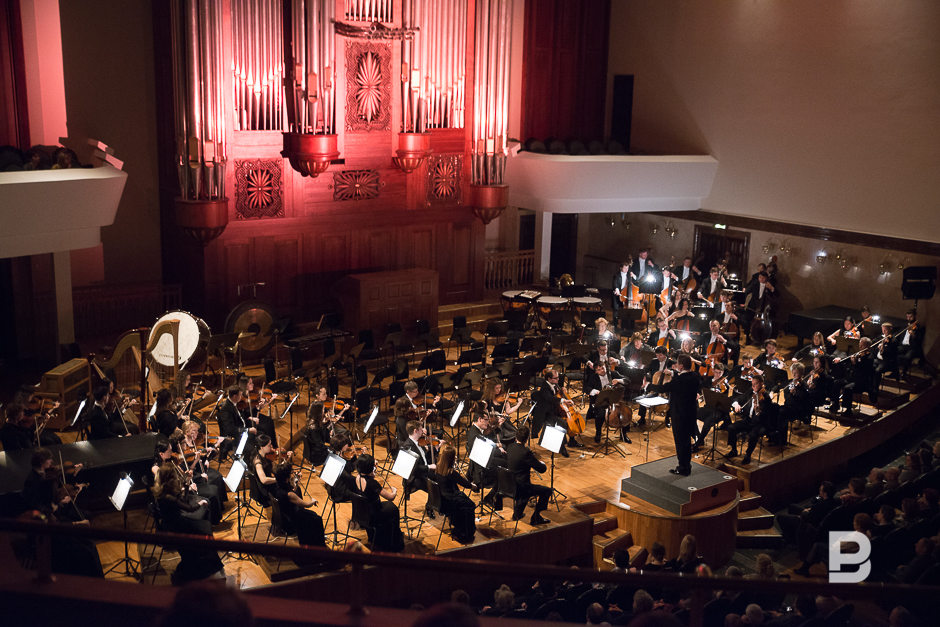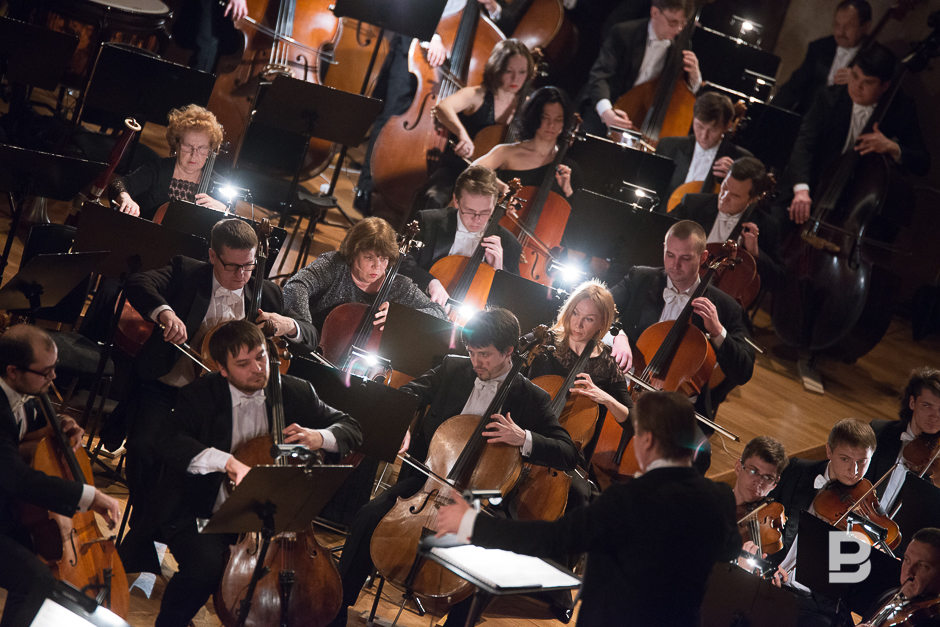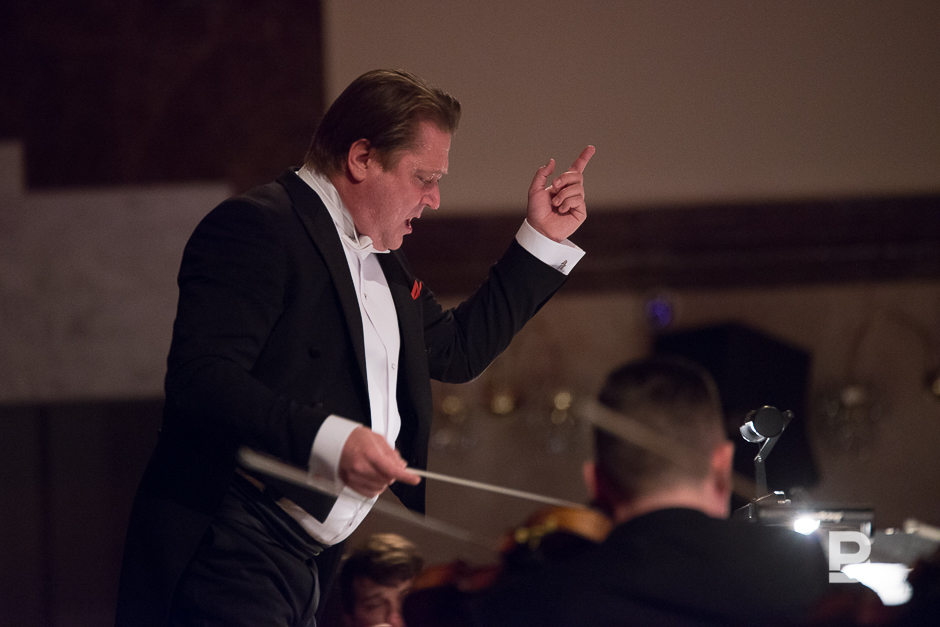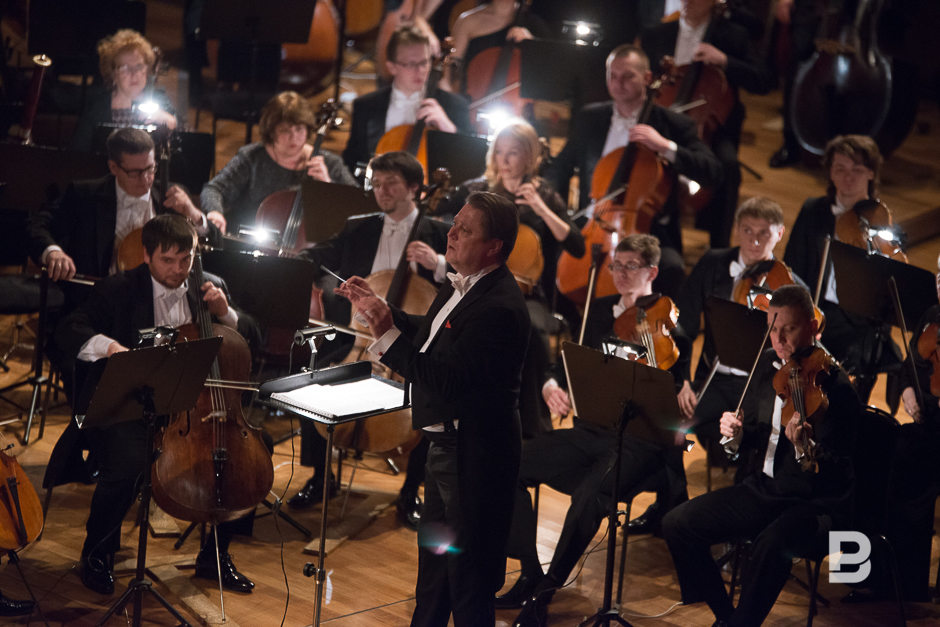Kazan citizens were presented Transfigured Night
Mahler was the gimmick of the Tatarstan State Symphony Orchestra concert
Tatarstan State Symphony Orchestra's concert on 18 March crossed the limits of the programme – rarely performed in Kazan composition of Schoenberg and Richard Strauss in the first part and Mahler's Das Lied von der Erde sounded. The latter was performed in Kazan for the first time. As a rule, if the audience starts to applaud a lot by the end, the ovations on 18 March started with the first composition.
Towards light
Saying that the Tatarstan State Symphony Orchestra offers a ''usual'' programme we will probably entrench upon the truth. In recent years, the orchestra was not seen in programmes. The concert on 18 March was elegant – Schoenberg, Richard Strauss and Mahler with his very complicated Das Lied von der Erde (''The Song of the Earth'') for a tenor and a baritone and symphony orchestra.
The concert kicked off with Schoenberg, his Transfigured Night. The light was dimmed, the stage was in a twilight. The first sounds of the string instruments appeared like in the fog. Moon is not seen in this fog. Two people – a man and a woman – are walking along the road. She confesses she committed adultery, a tough conversation, he forgives her. It is the plot of Transfigured Night based on Richard Dehmel's Weib und Welt.
The romantic nature of the music captivated the audience, the dialogue of the violins and violas was as acute and harsh as a talk about love and adultery can be, that the world can collapse in a flash at such a cold, winter night when the darkness and cold in soul seem not to have an end.
Aleksandr Sladkovsky seemed to feel all tragedy of the characters as if he had been on the edge where the heroes of the Transfigured Night were. He conducted the orchestra in a way that it was that space abyss that dreamers of the 19th century were speaking about as if they had been behind.
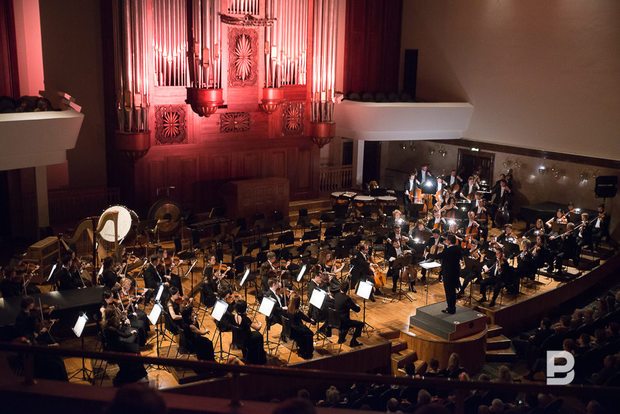
It seemed that everything clicked into place in that evening. The conductor who bravely and accurately read realistic compositions finally was a dreamer in terms of his art. His philosophy is likely to be a philosophy of ideal, his excellence over reality. If not, the orchestra performing Schoenberg would have sounded in another way.
But there, on the winter road, he forgives her because a dreamer's love doesn't have an ego, it traces back to a person's Divine. God is not only love but also forgiveness. The night becomes calm and transfigured like Moon appeared amid winter clouds. Like souls of these two travellers who almost dissolved in nature. The spectators who were shocked by the eavesdropped dialogue kept silence for some seconds and started to applaud loudly.
Schoenberg is followed by Richard Strauss, Tod und Verklärung (''Death and Transfiguration''). Suffering, death, transfiguration and eternal life is what the composer wanted to show. He was not a religious person and clearly followed a formula of his favourite Friedrich Nietzsche who said that one should look for God in their soul.
Eternal life, reconciliation of a person with eternity became the main idea in the romantic composer's endeavour performed by Aleksandr Sladkovsky. Though here the hero has doubts, fear of uncertainty and even fate at some moments of the strike. But God, that God who lives in soul comes to help. ''There is no death, each of us knows,'' Anna Akhmatova's lines could become an epigraph for the orchestra's performance of Richard Strauss' poem.
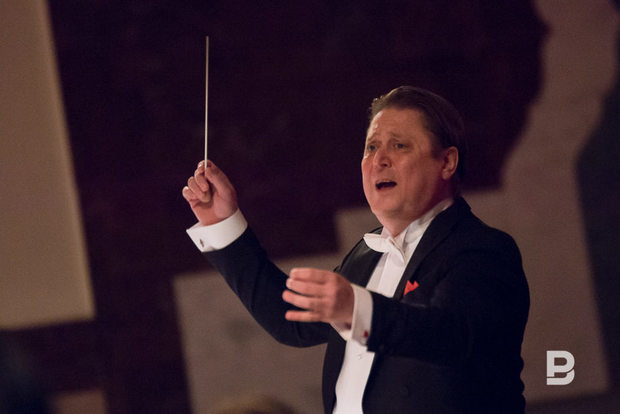
Eternity, eternity, eternity is around…
Gustav Mahler's Das Lied von der Erde was performed in Kazan for the first time. It is a song symphony for two voices and orchestra as very Mahler described. In Kazan, New Opera soloist Vasily Ladyuk (baritone) and the Mariinsky Theatre soloist Sergey Skorokhodov (tenor) performed these roles.
Verses of Chinese poets of the Tang era translated to German by Hans Bethge became the literal foundation. He called the book Die chinesische Flöte. Speaking about the serial number, Das Lied von der Erde is Mahler's ninth symphony. But he did not put the number due to superstition because the ninth symphonies were fatal for his adorable Beethoven and Bruckner.
What did Mahler find in Die chinesische Flöte? It seems that it was a very well expressed harmony of autumn and winter landscape full of calm sadness, which is a human old age. Sunset and death. The exotic poetry made Mahler write one of the most touching cycles. The conductor and orchestra present the character several emotions in the song symphony. From some joy to thoughts, from philosophic contemplation to conscience of the inevitable death. Conductor of Das Lied von der Erde is like a guide in this ambivalence of a human soul. Eternity, eternity, eternity is around… The eternity, which Aleksandr Sladkovsky felt in Mahler's music, that calms downs and heals.
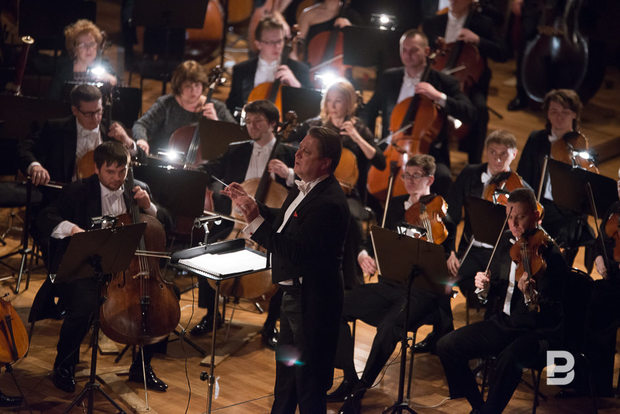
Vasily Ladyuk sang about the eternity, the caducity of passions more accurate than Sergey Skorokhodov who allowed to feel the space, endless universe and human soul. Harmony is the key word to explain the composition for both the conductor and Mahler. The harmony that the symphony's character will feel sooner or later.
The concert was strange and unusual. Schoenberg, Richard Strauss and Mahler's romantic nature. They are so different but speak about one thing – we will go nowhere, we will go to eternity. Where there is light, silence and calmness. We need to suffer and fight, love and forgive while we live to earn this promised eternity. There were a lot of applauses and silence, not empty, not strained but thoughtful that there is when a person looks at fire or water. What one can look at for all eternity.
